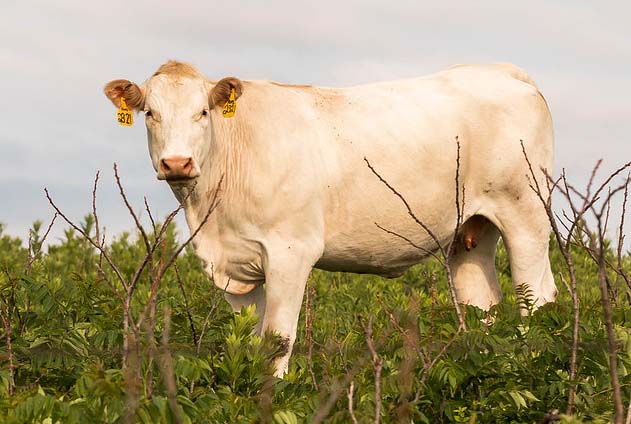
The knowledge gained through early pregnancy confirmation allows producers to make informed culling decisions. | Download this photo.
Cattle Chat: Benefits of confirming early pregnancy in heifers
K-State beef cattle experts say checking pregnancy status early can help with culling decisions
July 19, 2022
By Lisa Moser, K-State Research and Extension news service
MANHATTAN, Kan. — Many hopeful parents eagerly watch for the result on a home pregnancy test because they know that answer will likely influence personal choices of the mother in her nutrition and how she cares for herself and her baby. The sooner the couple has that information, the more able they are to respond to it.
In much the same way, beef producers are better able to manage their herd with an early confirmation of pregnancy, especially with the heifers and first-calf females, said the experts at the Kansas State University Beef Cattle Institute speaking on a recent Cattle Chat podcast.
“We know that cows that get pregnant early in the breeding season tend to stay in the herd longer than those who get bred late in the season,” said veterinarian Bob Larson.
Veterinarian Brad White added: “Those cows are also more productive in regards to producing calves with heavier weaning weights over the long term.”
Larson defined an early pregnancy check as one that occurs about 100 days after the breeding season has started.
“One of the important reasons to do a pregnancy check is to more accurately identify when they became pregnant,” Larson said. “A 30-day difference in gestational age is easy to pick up on early in the pregnancy and nearly impossible to distinguish late in the pregnancy.”
Larson said it is especially important to do these tests on heifers and young cows that may be managed differently than the rest of the herd.
“Those that got pregnant late should be considered for culling,” Larson said.
However, veterinarian Brian Lubbers cautioned producers not to check for pregnancy too early.
“Usually before day 35 there will be some natural embryo loss, so I recommend checking for pregnancy about 30 days after you pull the bulls out of the pasture,” Lubbers said.
From a marketing standpoint, nutritionist Phillip Lancaster said there is an advantage to knowing the pregnancy status.
“A bred cow has a lot more value than an open (non-pregnant) cow when she is sold,” Lancaster said.
Larson added that if cattle producers can sell ahead of the typical culling season, there are some economic advantages.
To hear the full discussion, listen to the Beef Cattle Institute Cattle Chat podcast online.

